Publications
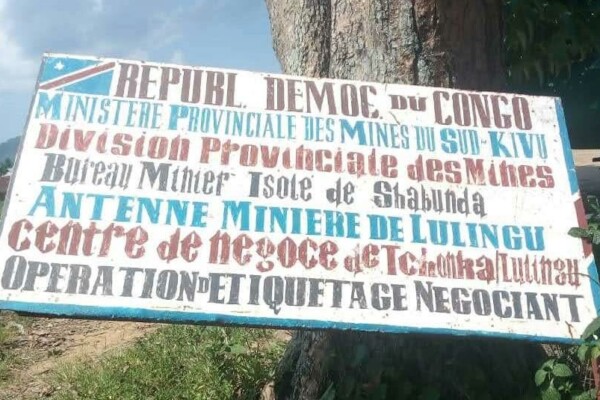
Comparative analysis of the fiscal regimes and implications for mineral trade of ASM 3TGs in Rwanda, Uganda, Burundi and the DRC
- Levin Sources | February 14, 2022
This briefing paper looks at the relationship between mineral fiscal regimes and the smuggling of minerals in the Great Lakes Region, both within and between countries. It presents an overview and comparative analysis of the fiscal regimes applicable to the artisanal and small-scale (ASM) production of tin, tungsten, tantalum and gold (3TGs) in Uganda, Rwanda, Burundi and the DRC, looking at the p
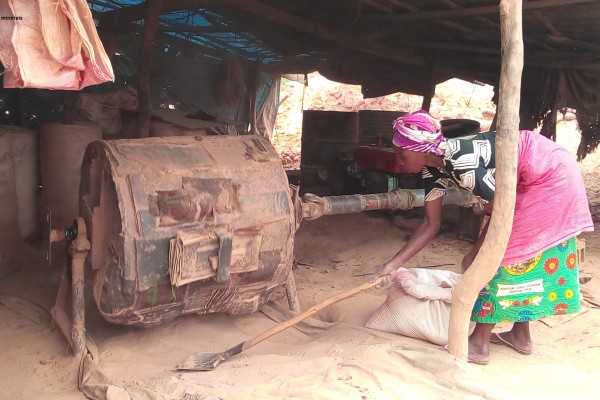
Voix du Congo: Misisi gold, a polluted supply chain: Causes and consequences
- APDE, Julien Mapenzi | January 24, 2022
In this Voix du Congo publication, the Congolese civil society organisation Action for Peace and Development (APDE) analyses mining-related incidents reported via the “Kufatilia” platform between July 2020 and June 2021 in the mining region of Misisi.
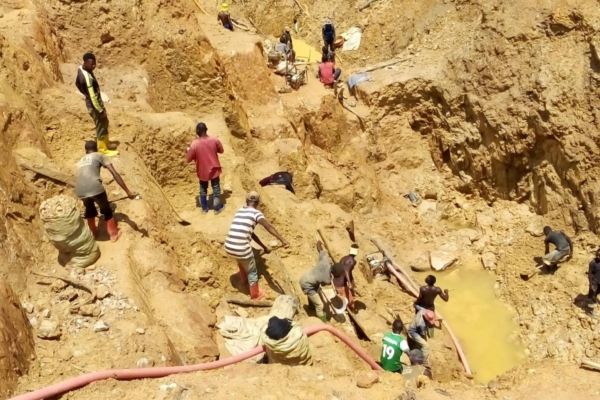
Advocating for an improved enabling environment for the production, trade and export of OECD Due Diligence Guidance (DDG)-conformant minerals from eastern DRC
- Levin Sources | November 23, 2021
As part of the Madini project, a review of the current situation, trends and barriers in the production, trade and export of tin, tantalum, tungsten (3T) and gold from eastern Democratic Republic of Congo (DRC) was conducted by Levin Sources, with the aim to recommend concrete actions that can improve OECD-conformant sourcing of these minerals from eastern DRC. The link between the exploitation of
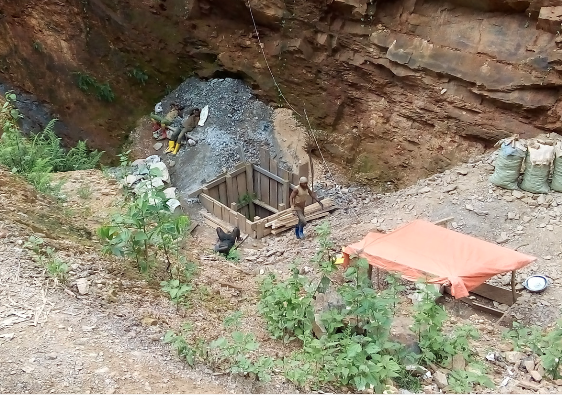
Madini – Conflict analysis and stakeholder mapping in the mining regions of South Kivu and Ituri
- Guillaume de Brier | August 20, 2021
To ensure that the implementation of the Madini project fits the local context and positively impacts the local population, IPIS conducted a conflict sensitivity analysis in South Kivu and Ituri. The present study highlights that poor governance, along with chronic poverty, are structural causes of violence in mining regions, whereas the presence o
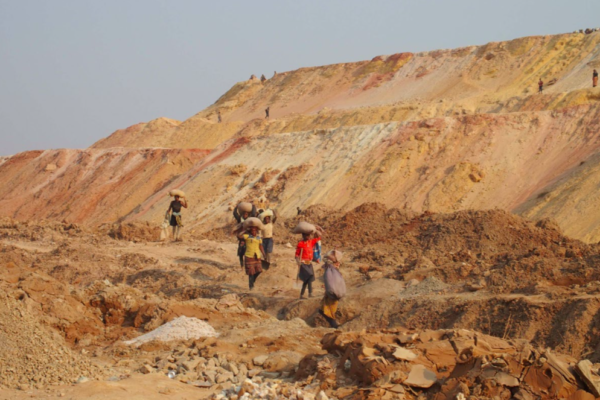
IPIS Due Diligence series – Comparative analysis between cobalt and 3T sourcing from the DRC
- Guillaume de Brier, Hadassah Arian, Lotte Hoex | July 26, 2021
This report compares the supply chains and traceability of 3T and cobalt ores in order to identify similarities, differences, and lessons learned from the decade of 3T experience in responsible sourcing, for the emerging cobalt initiatives. The experience of regulating responsible sourcing in the 3T sector has taught us the importance of engaging producing countries from the start of the draftin
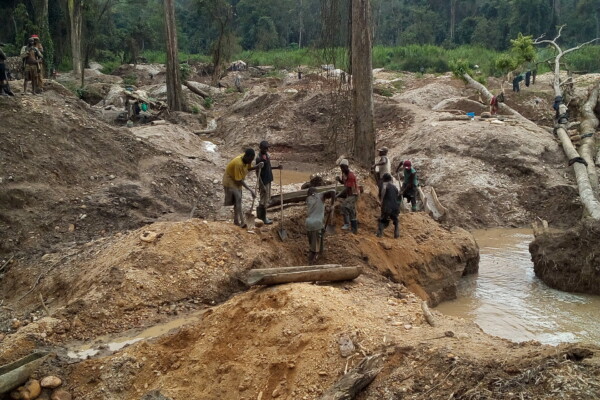
IPIS Insights -The artisanal and small scale mining sector in eastern DRC six months after the Covid-19 outbreak
- Guillaume de Brier, Ken Matthysen | April 19, 2021
In April 2020, when the Coronavirus spread around the world, IPIS started monitoring the impact of the pandemic on the production and trade of the artisanal and small-scale mining (ASM) sector in eastern Democratic Republic of the Congo (DRC). IPIS published a report in October 2020 that discussed the results of several rounds of consultations with ASM stakeholders at nearly 90 Tin, Tantalum, Tung
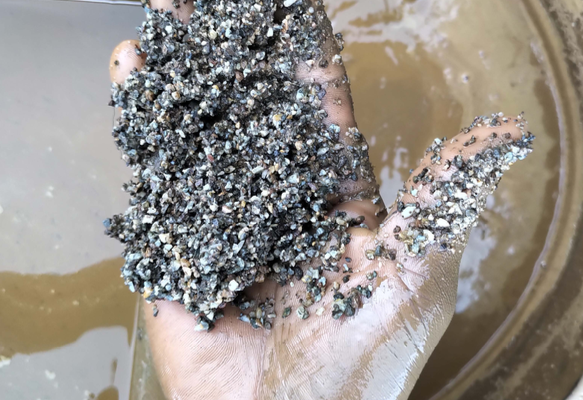
Evaluating Due Diligence Programs for Conflict Minerals
The 2010 Dodd-Frank Act requires that US-listed companies sourcing so-called “conflict minerals” from Africa’s Great Lakes region conduct due diligence. Since January 2021, the EU imposes its 3TG importers to conduct due diligence in line with the OECD Guidelines (for a comparison between the two regulations, see IPIS Insight: Regulating Responsible Sourcing of 3TG Minerals). D
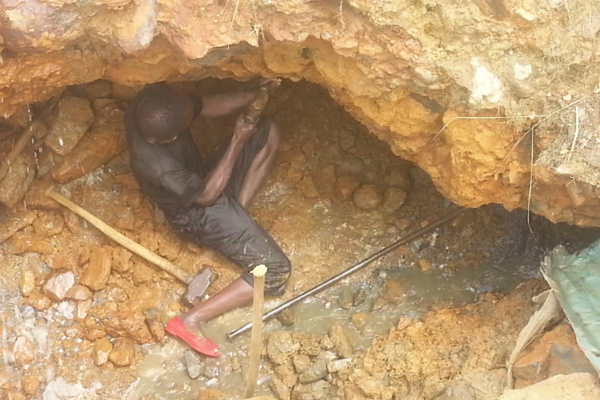
Voix du Congo: Analysis of incidents in 3TG supply chains in Walungu and Kabare, South-Kivu, DRC
- Benjamin BISIMWA, CRESA, Innocent IRENGE | February 2, 2021
Since November 2018, International Peace Information Service (IPIS) has been implementing the “Kufatilia” project which aims at strengthening transparency in the monitoring of incidents related to artisanal mining.
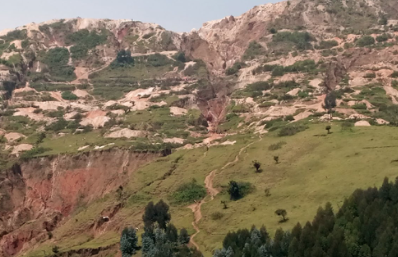
Voix du Congo: Monitoring incidents in artisanal supply chains in the Rubaya mining zone, Masisi territory, North Kivu
- Pole Institute, Raoul Banywesize Busime | December 15, 2020
In the “Voix du Congo” series, Pole Institute presents a study on incidents in artisanal supply chains in the Rubaya mining area, Masisi territory in North Kivu province (DRC). This study focuses on incidents reported between September and June 2020 via the “Kufatilia” platform in the Rubaya Mining Zone, Masisi Territory, North Kivu Province.
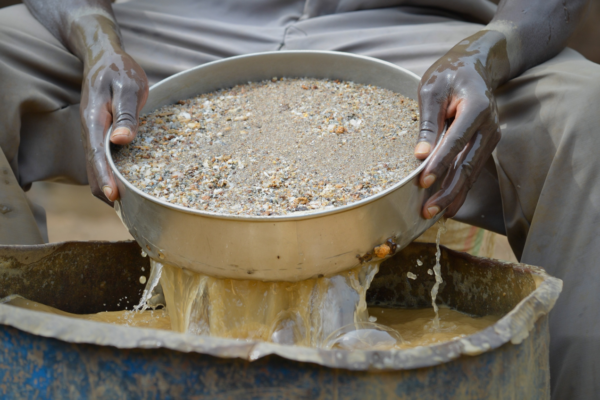
The mining sector in the Democratic Republic of Congo, Delve Country Profile
- Laure Gerig, Lotte Hoex, Nathan Schneck (Pact), Patricia Ndagano (World Bank) | November 5, 2020
In partnership with Delve, IPIS produced a profile of the ASM sector in the Democratic Republic of Congo. The Country Profile compiles information on the mining governance framework, provides data on key ASM minerals and analyses the contribution of artisanal mining to the SDGs.
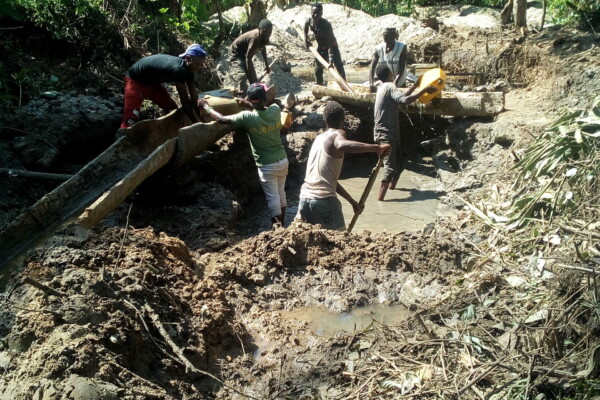
L’exploitation minière artisanale à Beni-Mbau : Etat des lieux et cartographie des sites miniers
- Henri Kamabu Ngavo, Herman Hamuli Miruho, Janvier Murairi (ASSODIP), Ken Matthysen, Mieke Thierens, Saidi Kubuya (ASSODIP) | October 30, 2020
In the framework of the stabilisation project “Ensemble pour Beni”, IOM, IPIS, ASSODIP and ASADHO carried out a baseline assessment of the artisanal mining sector in the Beni territory. This report provides an overview of the sector and analyses opportunities to promote responsible mineral supply chains.
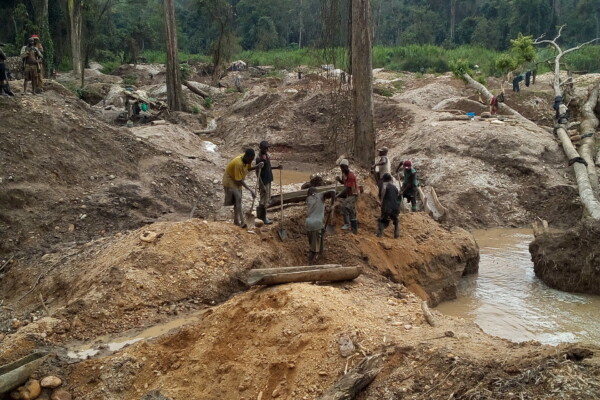
The impact of Covid-19 on the artisanal mining sector in eastern DRC
- Guillaume de Brier, Ken Matthysen, Lotte Hoex | October 14, 2020
As Covid-19 spreads around the world, artisanal mining communities experience once more how much their livelihoods depend on the global economy. Since the outbreak of the Covid-19 pandemic, IPIS has closely monitored its impact on 3T, gold and diamond mining and trade in the DRC.

Story map of ASM sites in the DRC
-
| October 6, 2020
Explore IPIS’ web map of the eastern Democratic Republic of the Congo (DRC) with a guided narrative In its new story map, IPIS presents data gathered on eastern DRC’s artisanal mining sector and highlights key information from its reports investigating the interactions between natural resources and conflict dynamics in the region. Data was gathered on around 2,700 mining sites, and the principal m
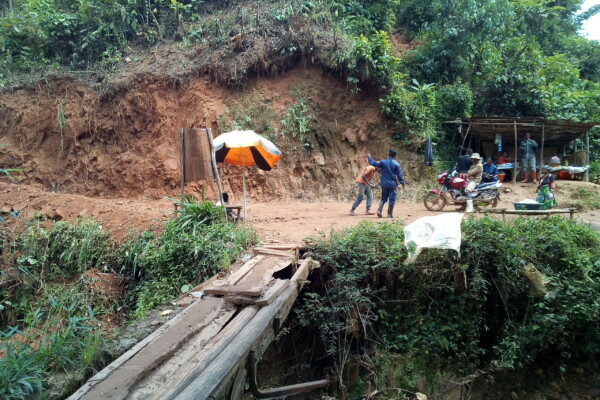
Voix du Congo : Analysis of incidents in the artisanal gold supply chain in Misisi
- APDE, Julien Mapenzi | July 28, 2020
See our series: VOIX DU CONGO In the “Voix du Congo” series, the non-profit organisation “Action pour la paix et le development” presents a study on incidents in the artisanal gold supply chain in Misisi. APDE is a socio-legal, apolitical and non-confessional NGO working on mining, human rights which can lead concrete response actions in specific areas such as: conflict prevention and resolution,
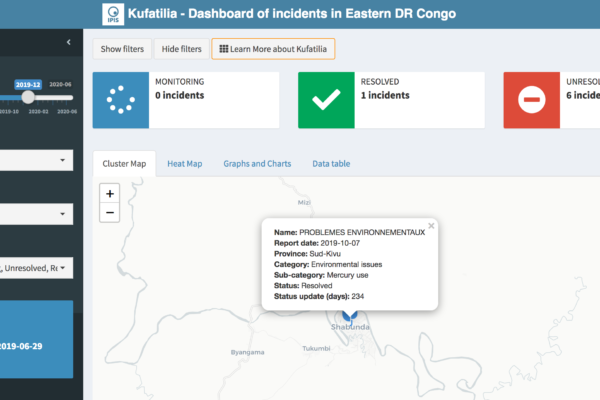
Voix du Congo : Analysis of incidents in the artisanal mining supply chain in Shabunda territory, South Kivu
- ACADHOSHA, Blaise BUBALA | July 23, 2020
See our series : VOIX DU CONGO In the “Voix du Congo” series, “Action des Chrétiens Activistes des Droits de l’Homme à Shabunda” (ACADHOSHA) presents a study of incidents in the artisanal mining supply chain in Shabunda territory (South Kivu). ACADHOSHA is a non-profit association, under Congolese law, that campaigns for the promotion of human rights, justice and the sustainable manage
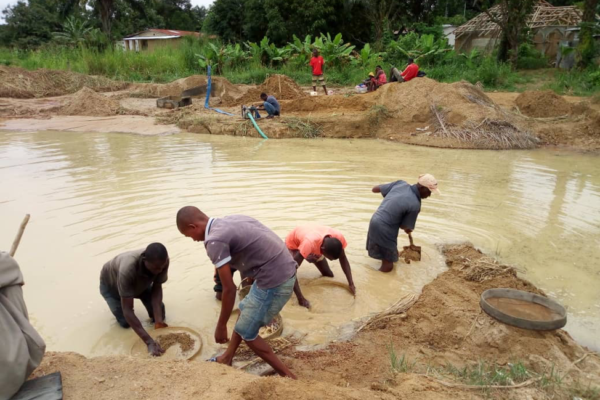
The impact of COVID-19 on African communities affected by diamond mining
- Kimberley Process Civil Society Coalition | July 1, 2020
The Kimberley Process Civil Society Coalition (KPCSC), of which IPIS is a member, has published a new report on the impact of COVID-19 on African communities affected by diamond mining. The diamond sector has been hit hard by the coronavirus pandemic. The devastation is felt across the supply chain, not the least in various African countries that depend on this precious mineral in their socio-econ
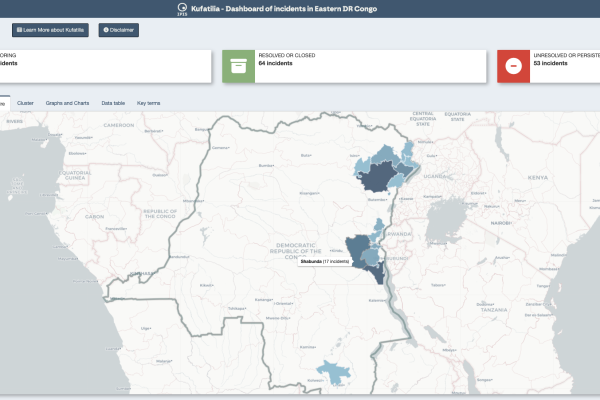
Dashboard of incidents in eastern DRC – Kufatilia
- Thomas Muller | June 10, 2020
The Kufatilia platform (“to track” in Swahili) is an SMS based incident reporting and follow-up mechanism that has been launched in 2019 to increase transparency of minerals supply chains in Eastern DRC. Developed by IPIS in partnership with the Centre for Expertise on Mining Governance (CEGEMI) based in Bukavu, and powered by Ulula, Kufatilia is a tool for Congolese civil society organisations to
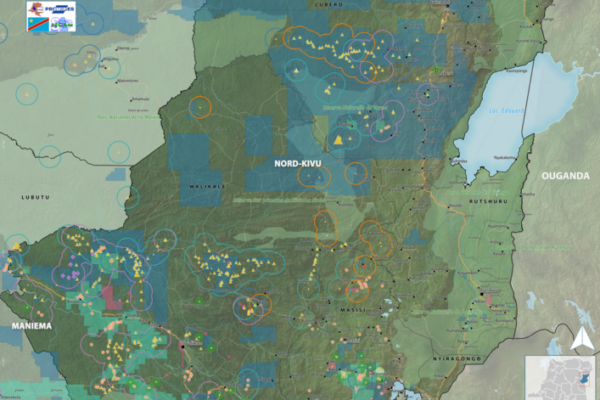
Maps of conflict minerals in Eastern DRC (2020)
- Alexandre Jaillon | June 9, 2020
IPIS created maps of conflict minerals in eastern DRC, more particularly on Haut Uele, Ituri and North and South Kivu. These maps detail the type of minerals, the qualification of the mines, the mining titles and give an overview of armed presence in and around the mines. d Download the North Kivu map in full resolution Download the South Kivu map in full resolution Download the Haut
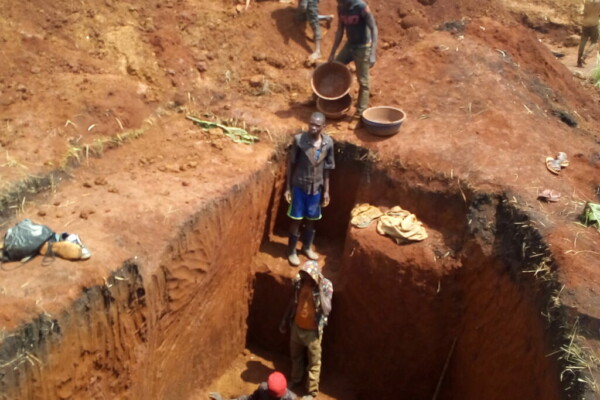
Transparency and Formalization of Gold Supply Chains in Eastern DR Congo
- Alexandre Jaillon, Erik Gobbers, Gabriel Kamundala Byemba | May 12, 2020
Advancing incident reporting and community participation in responsible sourcing From January 2018 till December 2019, IPIS and its partner CEGEMI (Catholic University of Bukavu) carried out a capacity enhancement project in the gold mining sector in Eastern Congo, financed by the European Partnership for Responsible Minerals (EPRM). The project was composed of two complementary parts: 1) a mining
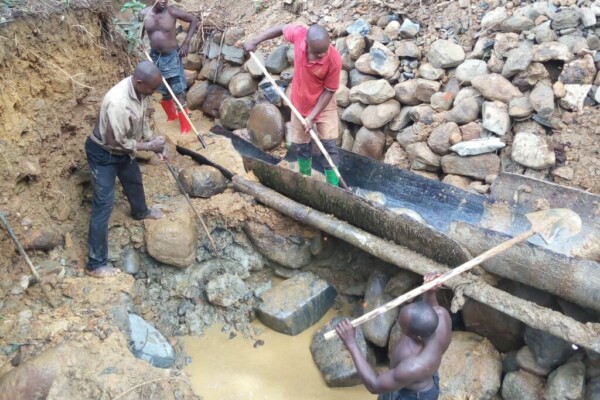
How much does a miner earn? Assessment of miner’s revenue; basic needs study in the DRC
- Alexandre Jaillon, Angela Jorns, Guillaume de Brier, Markus Geray | May 7, 2020
How much does a miner earn in Democratic Republic of the Congo (DRC)? Can a miner’s family cover its basic needs? In a new report, IPIS and Levin Sources compare the income of miners and their basic needs expenditures, to provide a better and nuanced understanding of why ASM communities seem to remain extremely poor and identify the factors that impact their income. This report is the first to fin

